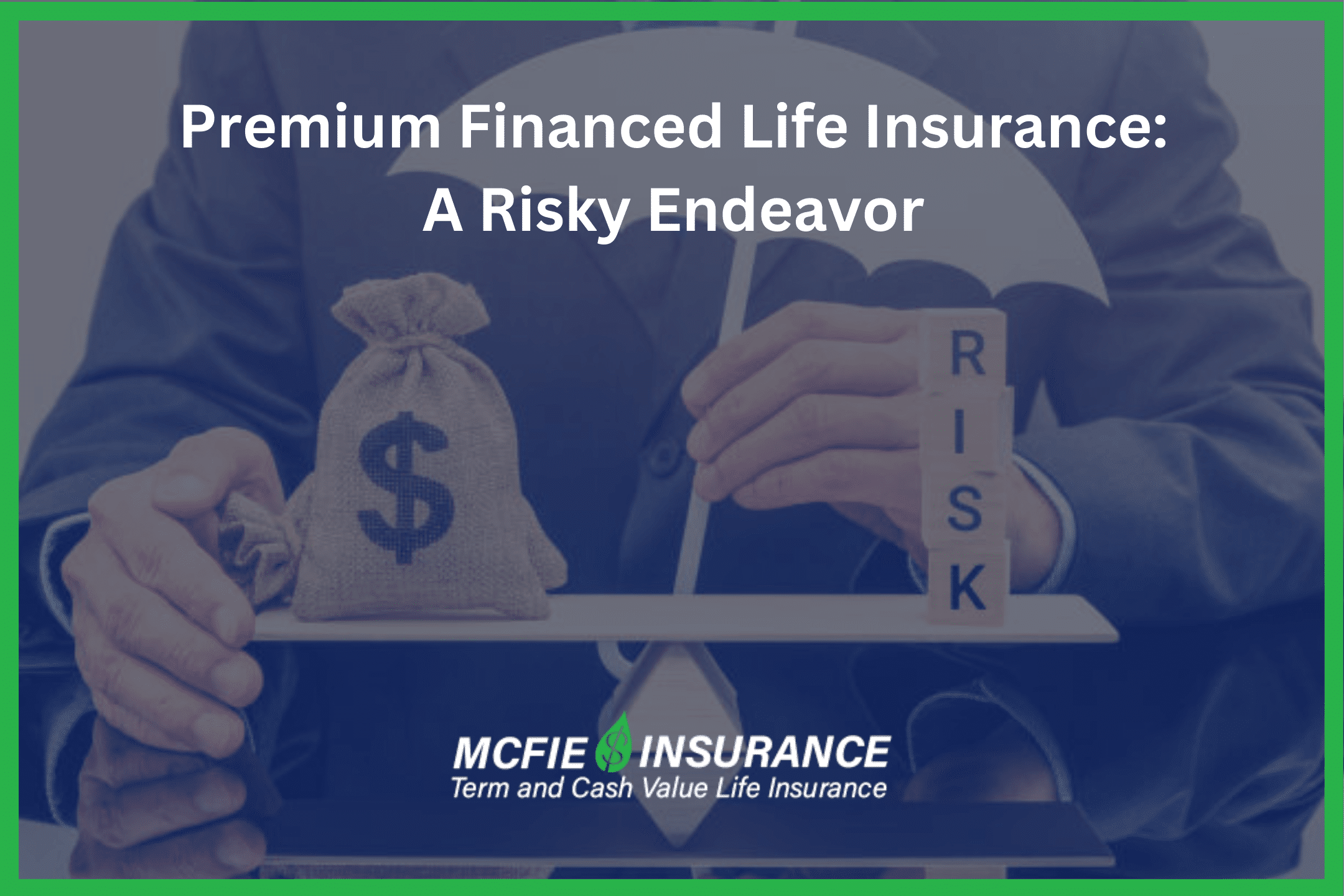702-660-7000
702-660-7000

It seems that premium financing to purchase life insurance is a common marketing tool to sell more life insurance to business owners and private individuals. Whether the marketing strategy is focused on how you can borrow against a life insurance policy you already own to finance another life insurance policy premium, or the marketing encourages you to use typical third-party financing, there are dangers that you should be aware of that could cost you a lot of money and other hardships.
Premium financing involves a lending institution covering the cost of the premiums for a life insurance policy, with the agreement that the policyholder will repay the borrowed amount, including interest, at a later date. Furthermore, the policyholder may need to provide additional security if the cash value of the policy does not suffice to settle the total amount owed to the lender. In the event that the insured individual dies before the loan is fully repaid, part of the death benefit is allocated to clear the loan balance, while any surplus is distributed to the designated beneficiaries.
Premium financing is primarily aimed at wealthy individuals, usually possessing assets worth $20 million or more, who require long-term insurance coverage. It is particularly advantageous for those who may not have readily available cash or liquid assets, as their wealth is often invested in ventures yielding returns higher than prevailing loan interest rates.
 | Get a working knowledge of how each type of life insurance policy works. After reading this 10-page booklet you'll know more about life insurance than most insurance agents. Download here> |
T. Boone Pickens, oil tycoon, corporate raider, billionaire, and philanthropist died September 11, 2019. He was known for his attempted hostile take-overs of publicly traded companies that were top heavy, meaning that executives were taking most of the profits for themselves instead of paying higher dividends to their stockholders.
Pickens was also known for the Gift of a Lifetime arrangement that fell flat on its face when the market crashed in 2008, leaving an example from which all of us can benefit: Premium Financed Life Insurance is sketchy, speculative, and should be avoided.
Pickens encouraged his alma mater to borrow $16 million from a bank in Stillwater Oklahoma, in order to purchase life insurance on him and a few other Oklahoma State University alumni who were all over age 65. Now OSU could have paid those premiums with invested funds in Pickens hedge fund BP Capital. But BP Capital was providing a 30% rate of return on OSU’s invested funds and they didn’t want to lose that rate of return. Eventually they paid $33 million in premiums, all in borrowed money, before the bottom fell out.
One reason the bottom fell out was that none of the insured alumni died soon enough. Then the market collapsed and OSU lost $282 million over just 4 months. Then Bank of America made a margin call on OSU’s line of credit they had in order to build their football stadium and athletic department. This forced OSU to liquidate their BP Capital investments to pay off their Bank of America loan. Then another premium for $16 million came due which OSU had to borrow from the Stillwater bank to pay the life insurance company.
The long story made short is that OSU lost a lot of money because they could no longer continue to pay the life insurance premiums and they couldn’t afford to pay back the Stillwater bank for the money they had borrowed to finance the premiums already paid. In the end, they lost the policies. But the good ending to the story is that T. Boone Pickens picked up the tab on the loan from the Stillwater bank and paid it off for OSU at $3 million per quarter.
When Pickens passed away, his life insurance policy reimbursed his estate for all of those $3 million loan repayments made to that Stillwater bank, plus more.
That is the take home message.
Unless you have a wealthy friend, who has your back, don’t borrow money to finance life insurance policy premiums. Pickens had both OSU’s AND his own back covered because he had the money to pay the Stillwater bank plus he owned a $100 million life insurance policy on his life. Those are things that most business owners and private individuals don’t have, and therefore they should be cautious about premium financed life insurance.
Make sure you cover your own back with permanent Whole Life insurance. While you may not need the amount of coverage Pickens passed on to his heirs, you can leave your own legacy.
 Dr. Tomas P. McFie
Dr. Tomas P. McFie
Most Americans depend on Social Security for retirement income. Even when people think they’re saving money, taxes, fees, investment losses and market volatility take most of their money away. Tom McFie is the founder of McFie Insurance which helps people keep more of the money they make, so they can have financial peace of mind. His latest book, A Biblical Guide to Personal Finance, can be purchased here.